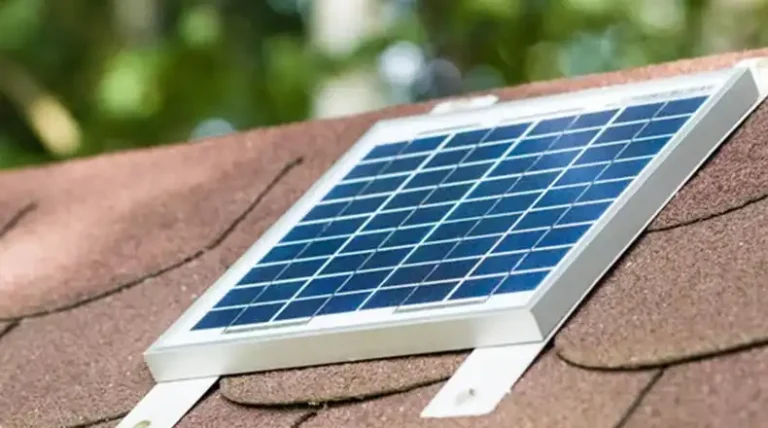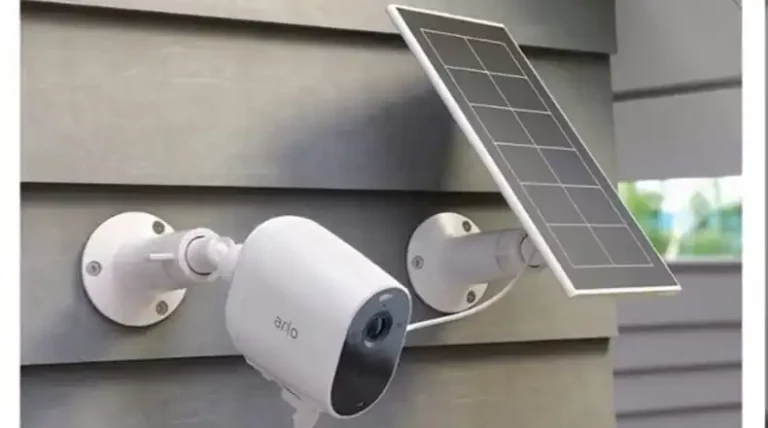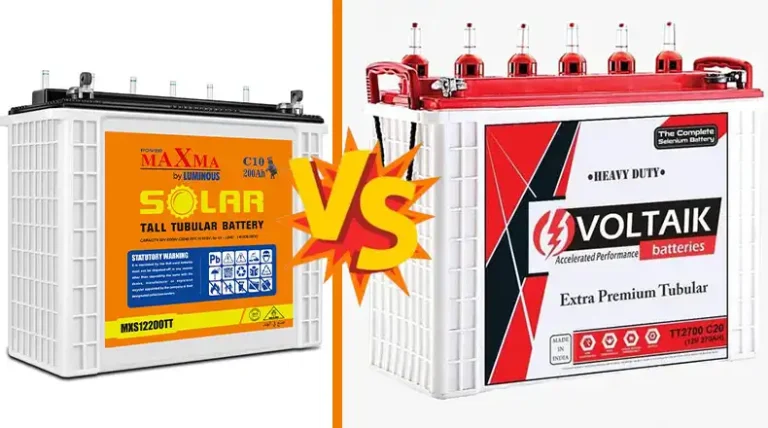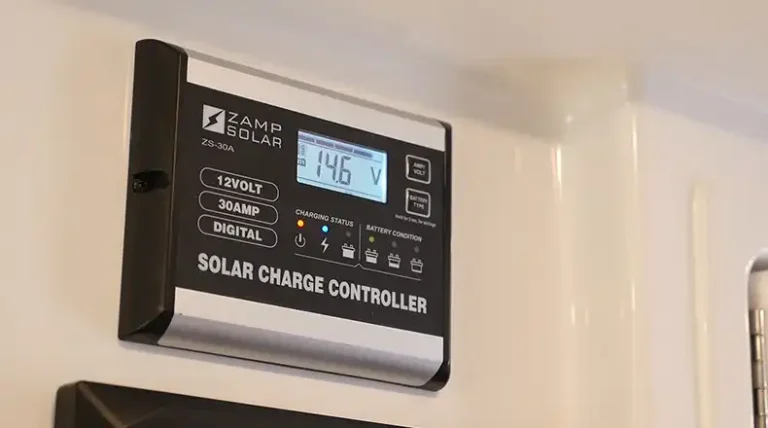Can a Solar Charger Overcharge a Battery?
With the rising popularity of solar chargers for powering and charging everything from phones to batteries, a common concern is whether these devices can potentially overcharge and damage the batteries they’re connected to. Most of us want the convenience of solar charging without having to worry about potential risks.
In short, the answer is yes, solar chargers can technically overcharge batteries if not designed properly or used correctly. However, most quality solar chargers on the market today come with built-in mechanisms to prevent overcharging.
By understanding how solar chargers work, taking precautions, and finding the right products, overcharging batteries can easily be avoided. For this, I have discussed solar charger technology, the risks of overcharging, and tips to find the best solar solutions for safely powering batteries without damage. Read on to keep your batteries protected.
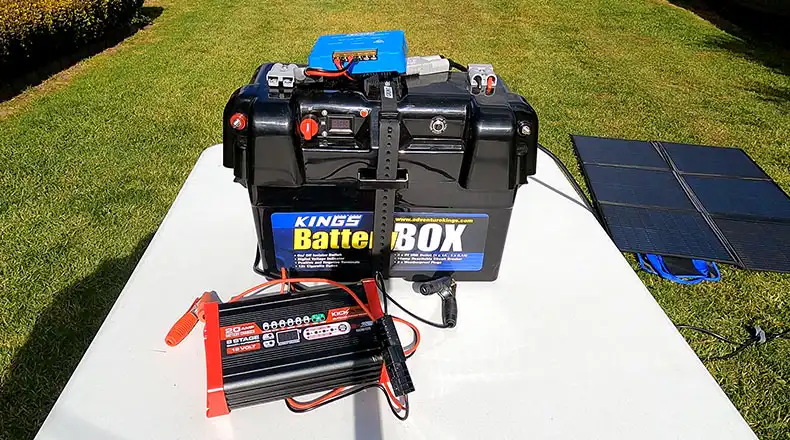
How Do Solar Chargers Work?
To understand if and how solar chargers can overcharge batteries, it’s important to first look at how these devices work.
Solar chargers, also known as solar battery maintainers or trickle chargers, use photovoltaic solar panels to convert sunlight into electricity. This electricity is then used to charge a battery through a charge controller, which regulates the power flowing from the solar panels to the battery.
Here are the key components of solar chargers:
- Solar Panels: The photovoltaic solar panels in solar chargers contain semiconductor materials like silicon that generate an electrical current when exposed to sunlight. The solar cells are wired together to produce a usable voltage and power output.
- Charge Controller: The charge controller or solar regulator is the “brains” of the solar charger that manages the power transfer between the solar panels and battery. It ensures the battery is charged efficiently without being overcharged.
- Battery: The battery is the energy storage component being charged by the solar panels. Common battery types used include lead-acid, lithium-ion, NiMH, and more.
- Wiring: Electrical wiring connects all components together to transmit the electricity generated from solar to the battery.
- Housing: The outer casing or housing provides protection and holds the solar panels and internal wiring together in one unified device. Housings can be plastic or metal.
How Can Solar Chargers Overcharge Batteries?
With this basic functionality in mind, now we can look at how these solar charger systems can potentially overcharge the batteries they’re connected to.
There are two primary ways solar chargers can overcharge batteries:
Lack of Proper Charge Regulation
The key job of the charge controller in a solar charger is to prevent overcharging by limiting and regulating power flow to the battery once it’s fully charged. Essentially, it acts like a switch that stops electricity from the panels reaching the battery when it hits 100% charge.
Without proper charge regulation, a solar charger will continuously pour electricity into a battery regardless if it needs more charging. This dumps excessive electrical current into the battery leading to overcharging damage over time.
User Error
Even solar chargers with the best charge regulation can overcharge batteries if used improperly by the owner. User behaviors that can lead to overcharging include:
- Leaving the solar charger connected to the battery perpetually without occasional disconnecting
- Connecting solar chargers to an incompatible battery bank or system
- Using the solar charger in extremely hot conditions leads to battery overheating
- Attempting to charge non-rechargeable disposable batteries
So in summary, defects with the solar charger design or improper usage can both result in battery overcharging. Responsible steps must be taken on both the manufacturing and consumer sides to prevent this.
Potential Damage from Overcharging Batteries
Before going into solutions, it’s important to understand the type of damage overcharging a battery can cause over time. The extent of damage will depend on factors like degree of overcharge, battery type, and length of exposure.
- Lower Battery Lifespan: Overcharging degrades the internal electrodes and chemical composition inside a battery. This reduces its ability to hold power and shortens its overall lifespan from normal use.
- Capacity Loss: Batteries slowly lose their rated capacity to store and provide power as they age. But overcharging rapidly accelerates capacity decline meaning the battery provides less runtime between charges.
- Internal Short-Circuiting: Extended overcharging can cause short circuits between the cathode and anode in the battery interior. This leads to a permanent loss of function and the need for full replacement.
- Thermal Runaway: Overcharging causes excessive heat buildup, especially in lithium-ion batteries. If left unchecked, this leads to thermal runaway causing the battery to overheat and eventually explode or catch fire.
- Cell Damage: Individual cells inside a battery can become damaged and non-functional from overcharging while the overall battery continues to operate at lower performance.
- Electrolyte Loss: In flooded lead-acid batteries, overcharging boils away the internal electrolyte fluid which leads to sulfation and impaired functionality.
Overcharging degrades batteries from the inside out through multiple mechanisms. This gradually ruins lifespan, performance, and eventually total function.
How to Prevent Solar Charger Overcharging
Now that we’ve covered the how and why of solar chargers overcharging batteries, let’s look at proven ways to prevent it from happening in the first place.
1. Choose Solar Chargers With Charge Regulation
As covered earlier, the root cause of most overcharging issues stems from a lack of proper charge control in solar chargers. So the first line of defense is:
Only use solar chargers that specifically feature automatic charge regulation or charge controllers.
Quality regulators cut off power flow when the connected battery is fully charged. This avoids overcharging without any manual oversight required.
Many cheap, low-quality solar chargers lack built-in regulation. Avoid these models entirely when charging batteries to eliminate risk. Paying a little more upfront for properly designed solar chargers with regulations is worthwhile to protect your batteries.
2. Match Solar Ratings to Battery Needs
Another rule of thumb is matching solar panel ratings to the battery being charged:
- Use lower-wattage solar panels for smaller batteries to avoid oversupplying power
- Select higher-wattage solar panels for large battery banks that require more charging input
Ideally, the solar panel wattage should be 1.25 to 1.5 times the battery capacity for proper charging rates.
3. Follow Manufacturer Guidelines
Reputable solar charger makers provide usage guidelines to avoid overcharging. Follow these closely including:
- Using the recommended battery type and voltage
- Charging within the specified temperature range
- Not leaving the solar charger perpetually connected
- Ensuring proper wiring connections
Straying outside usage guidelines risks overcharging and voided warranties if damage occurs.
4. Monitor Charge Level and Disconnect When Full
While regulations lessen the need for oversight, it’s still smart to monitor charge levels and manually disconnect the solar charger once the connected battery reaches 100% charge. This provides a failsafe against potential regulator failures down the road.
5. Avoid Very Hot Conditions
Heat is the enemy of proper battery charging. Use solar chargers in cooler shaded areas when possible and avoid extremely hot locations that can cause batteries to overheat even if not technically overcharged.
6. Consider a Charge Timer
For complete hands-free convenience, invest in a stand-alone charge timer to plug your solar charger into. Set the timer to turn off daily for a period to halt charging and avoid perpetual overcharging from the sun.
Bonus: Best Solar Chargers for Batteries
You now have a full grasp of solar charger capabilities and risks when it comes to overcharging batteries. But which specific products on the market today are the safest and most reliable choices? Here are the top solar charger models I recommend:
Renogy Monocrystalline Solar Starter Kit
- Ideal for RV, marine, and off-grid use
- Built-in solar charge controller (10 Amp)
- Monocrystalline panels for high-efficiency
- Expandable modular design
- Backed by 5-year material and workmanship warranty
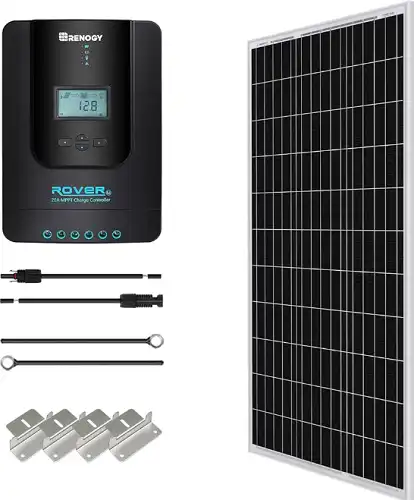
ALLPOWERS Portable Solar Charger
- Great for camping and hiking
- Foldable compact design with canvas case
- 18V 5W solar panel charges phones, AA’s, etc.
- Waterproof and shockproof
- Includes charge controller and built-in LEDs
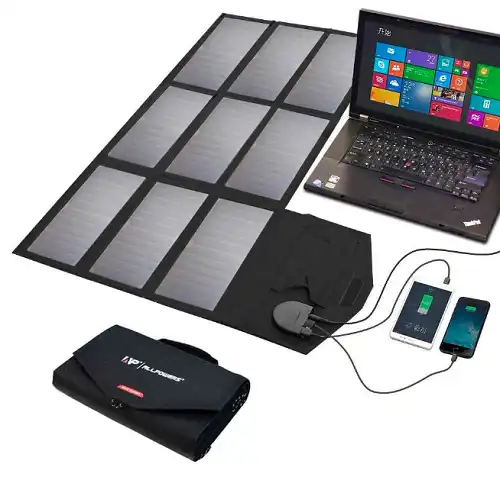
Nekteck 21W Solar Charger
- 21W high-efficiency Sunpower solar cell
- 2 USB ports for simultaneously charging devices
- Water resistant durable canvas construction
- Integrated voltage regulator for overload protection
- Includes a range of adapter tips for different devices
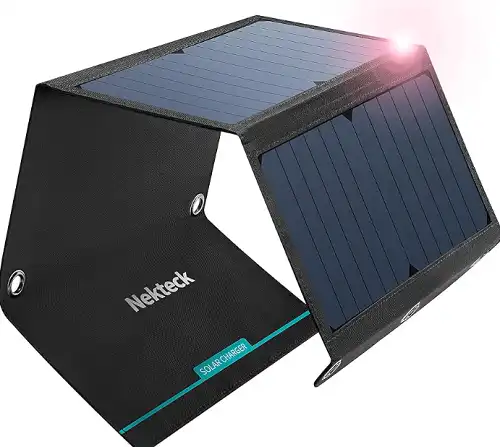
HQST 12V Solar Panel Kit
- Complete kit for off-grid cabins and sheds
- 100W monocrystalline solar panel
- 20A PWM charge controller
- MC4 connectors and tray cable for expandability
- 25-year transferable power output warranty
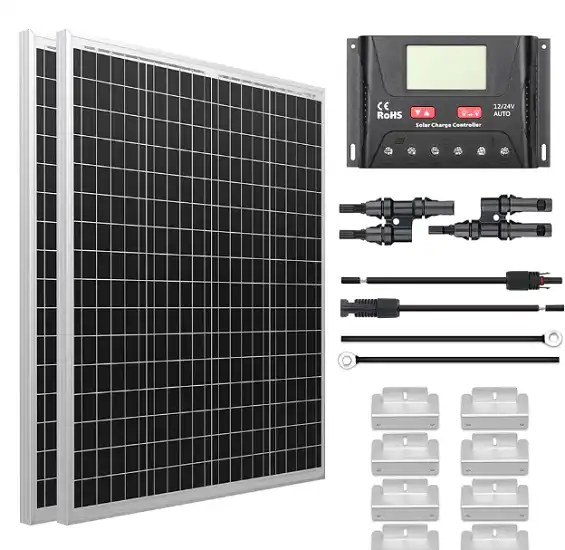
I recommend these top-rated solar chargers for their use of modern charge controllers and high-quality construction to eliminate overcharging risks. Purchase solar charger kits from trusted industry brands for reliable performance and safety.
More Related Queries
Can Use A Solar Charger Damage My Battery?
Yes, solar chargers that lack proper charge regulation or are used incorrectly can potentially damage batteries through overcharging. Always check that a solar charger has automatic charge control and follow usage guidelines to prevent battery damage.
How Do I Know If My Solar Charger Is Overcharging?
Signs of a solar charger overcharging batteries include the battery feeling hot, appearing bloated or bulging, not holding charge as long as normal, or showing reduced overall battery life. Relying on quality solar chargers with regulation minimizes overcharging.
Should Solar Chargers Be Disconnected At Night?
It’s not strictly necessary to disconnect solar chargers at night as regulations will prevent overcharging anyway. However, periodically disconnecting lets you monitor battery health and provides extra assurance against malfunction.
Can I Use A Solar Charger Indefinitely Without Battery Damage?
Quality solar chargers with proper charge regulation are designed for continuous indefinite use without battery damage. But occasional inspection and disconnection is still recommended. Cheap chargers without regulation will overcharge if left continually connected.
How Long Does It Take To Overcharge A Battery?
Overcharging can slowly damage batteries over weeks and months. Small occasional overcharging from solar may not cause immediate issues. But extended bulk overcharging will rapidly degrade batteries in days or less as heat and gas buildup accelerates damage.
Final Thoughts
While solar chargers provide a convenient way to harness the power of the sun, overcharging risks are a valid concern for keeping batteries safe. The key takeaways are to only use reputable solar chargers featuring automatic charge regulation, follow manufacturer charging guidelines, periodically disconnect the charger, and appropriately pair solar panel wattage to battery size.
The solar solutions recommended in this guide offer the needed safeguards to put your mind at ease. Thanks for reading this deep dive into whether solar chargers can overcharge batteries. I hope you now feel fully equipped with the knowledge to employ solar power worry-free! Let me know in the comments if you have any other solar charging questions.


